 Template_1 on iPropertyManagement.com" width="1224" height="1584" />
Template_1 on iPropertyManagement.com" width="1224" height="1584" />  Template_1 on iPropertyManagement.com" width="1224" height="1584" />
Template_1 on iPropertyManagement.com" width="1224" height="1584" />
A Rhode Island rental agreement is a legal contract between a landlord overseeing a rental property and a tenant who wishes to use it. Rhode Island landlord-tenant law governs these agreements; rental terms must be within the limits allowed by law.
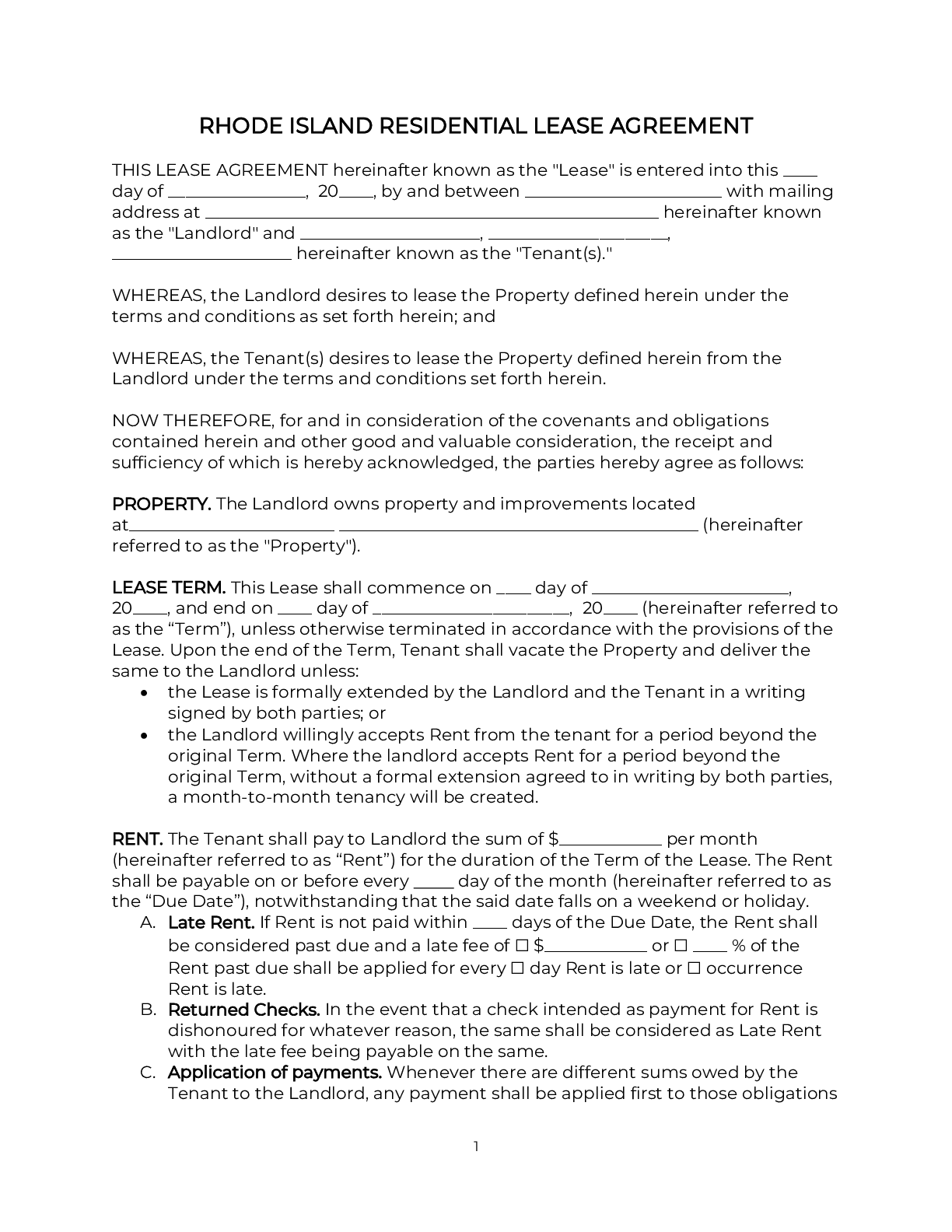
A Rhode Island residential lease agreement (“rental agreement”) is a legal contract for a tenant to rent a residential property from a landlord, subject to terms and conditions agreed by all parties.
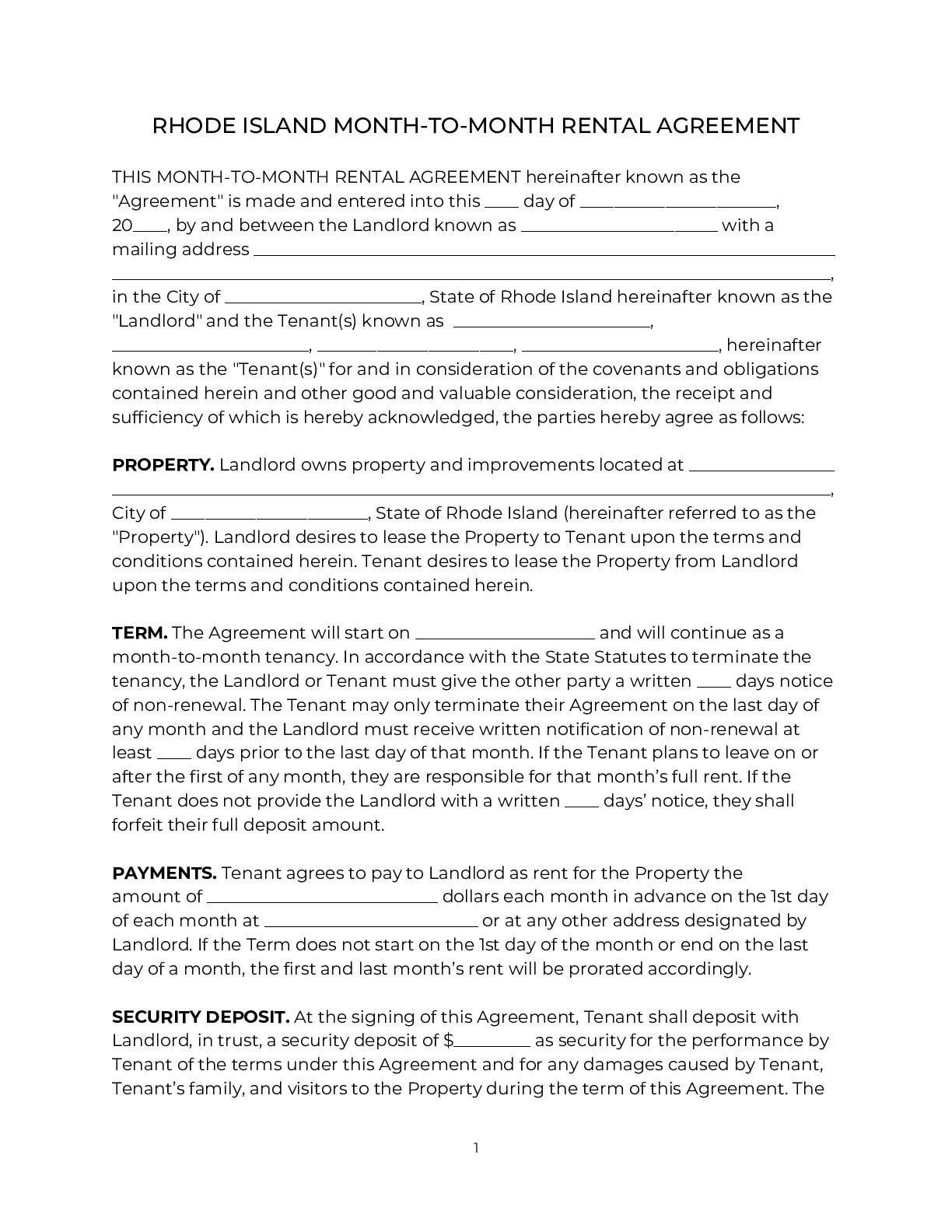
A Rhode Island month-to-month lease agreement is a contract (not necessarily written) where a tenant rents property from a landlord. The full rental term is one month, renewable on a month-to-month basis.
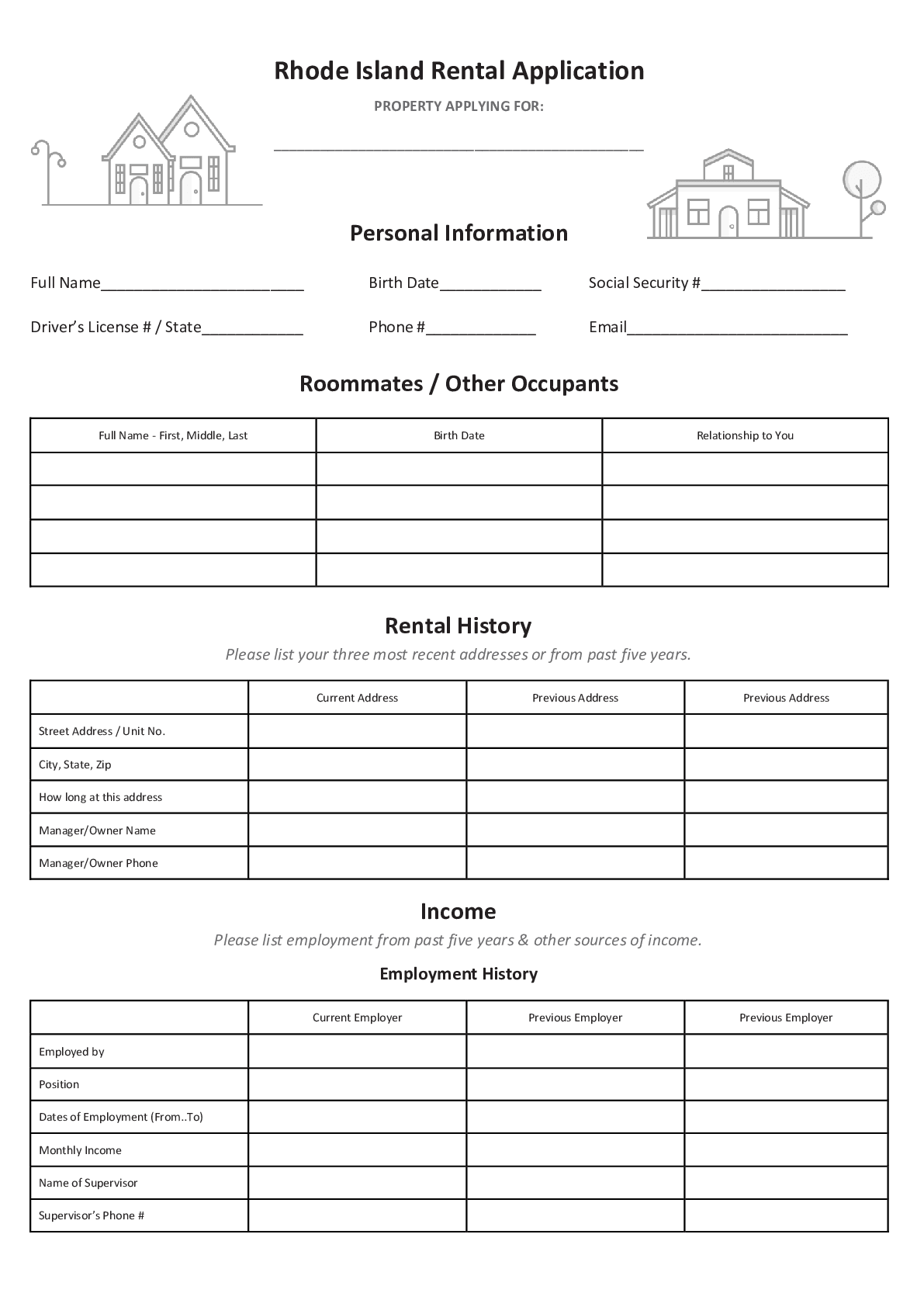
Rhode Island landlords may use a rental application form to screen prospective tenants. A rental application collects information relating to finances, rental history, and past evictions.
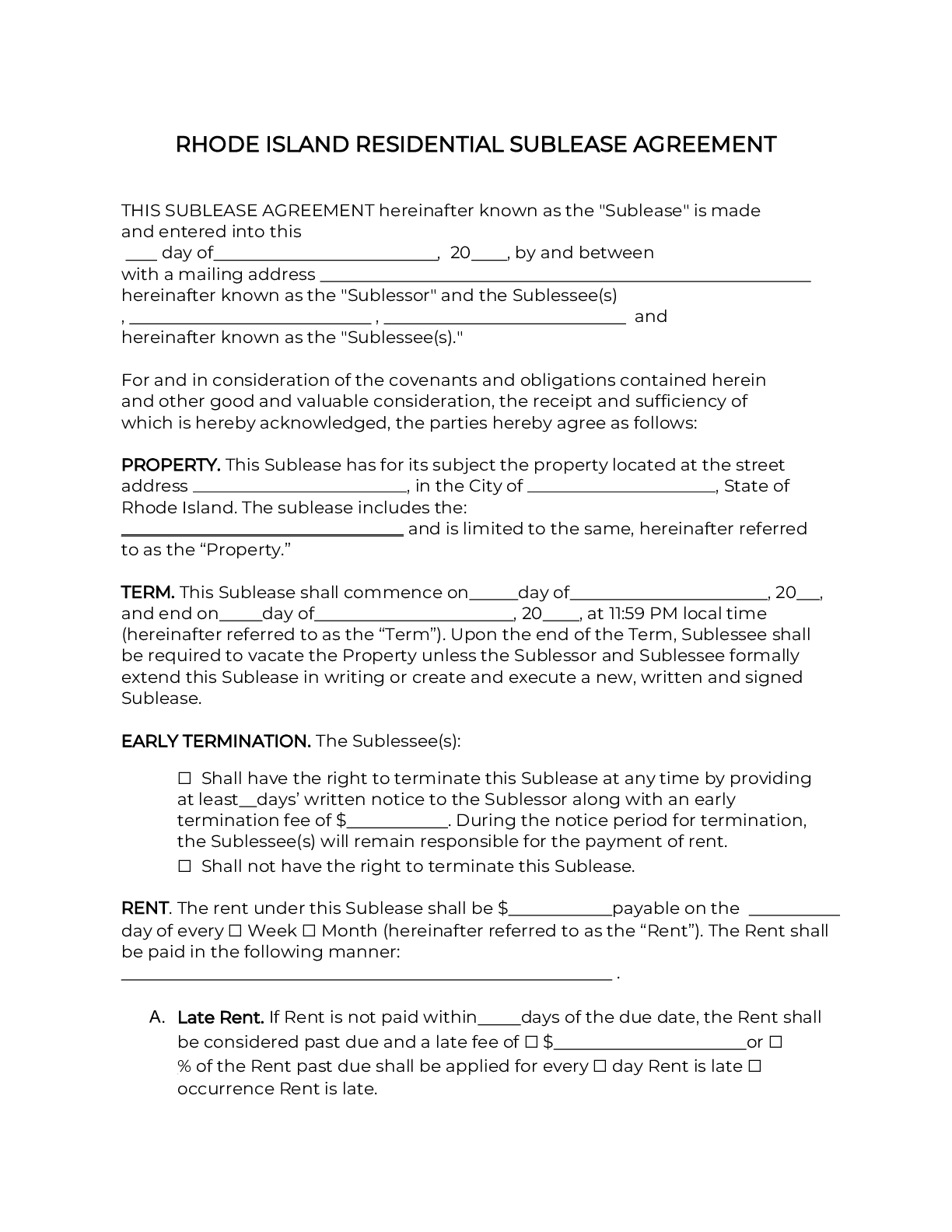
A Rhode Island sublease agreement is a legal contract where a tenant ("sublessor") rents (“subleases”) property to a new tenant (“sublessee”), usually with the landlord’s permission.
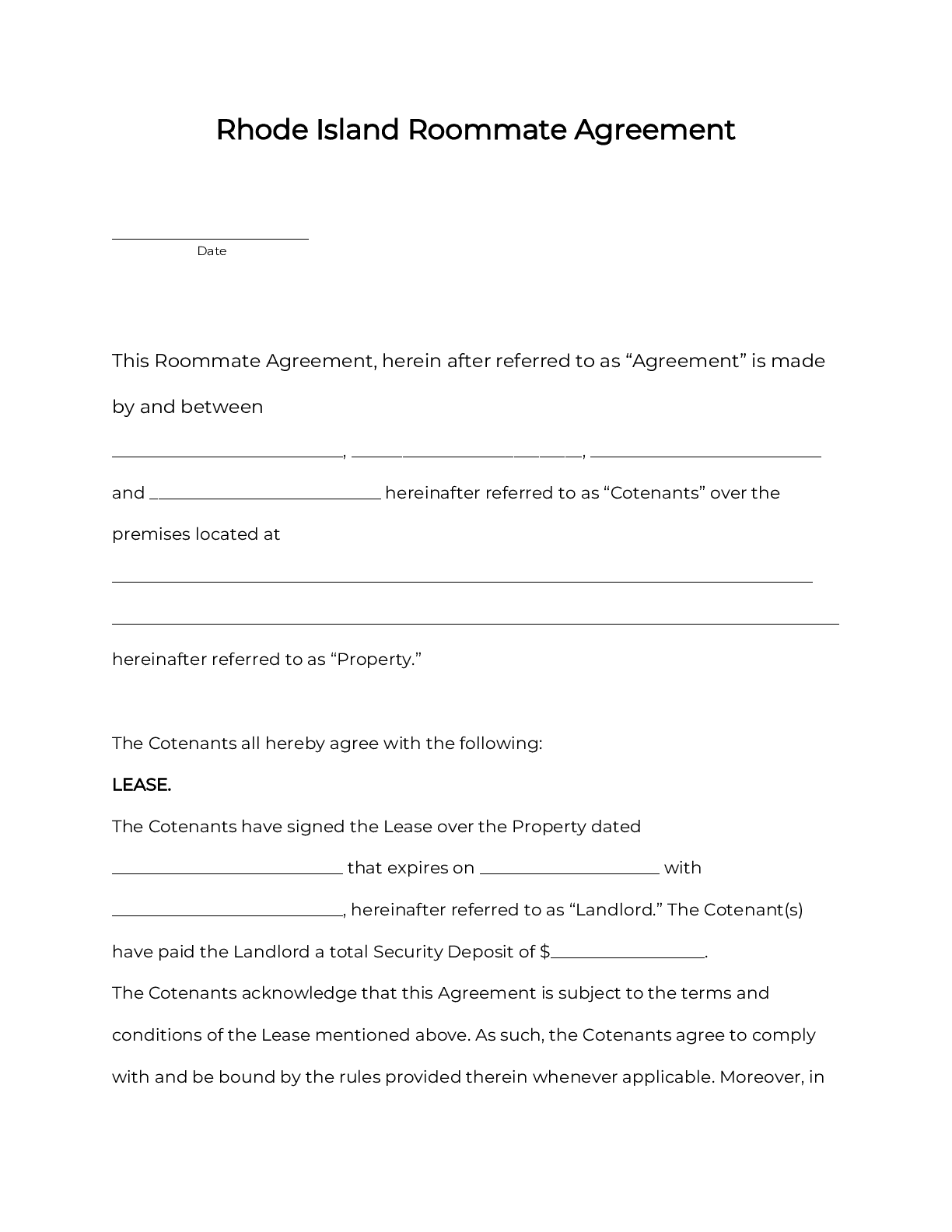
A Rhode Island roommate agreement is a legal contract between two or more people (“co-tenants”) who share a rental property according to rules they set, including for things like splitting the rent. This agreement binds the co-tenants living together, and doesn’t include the landlord.
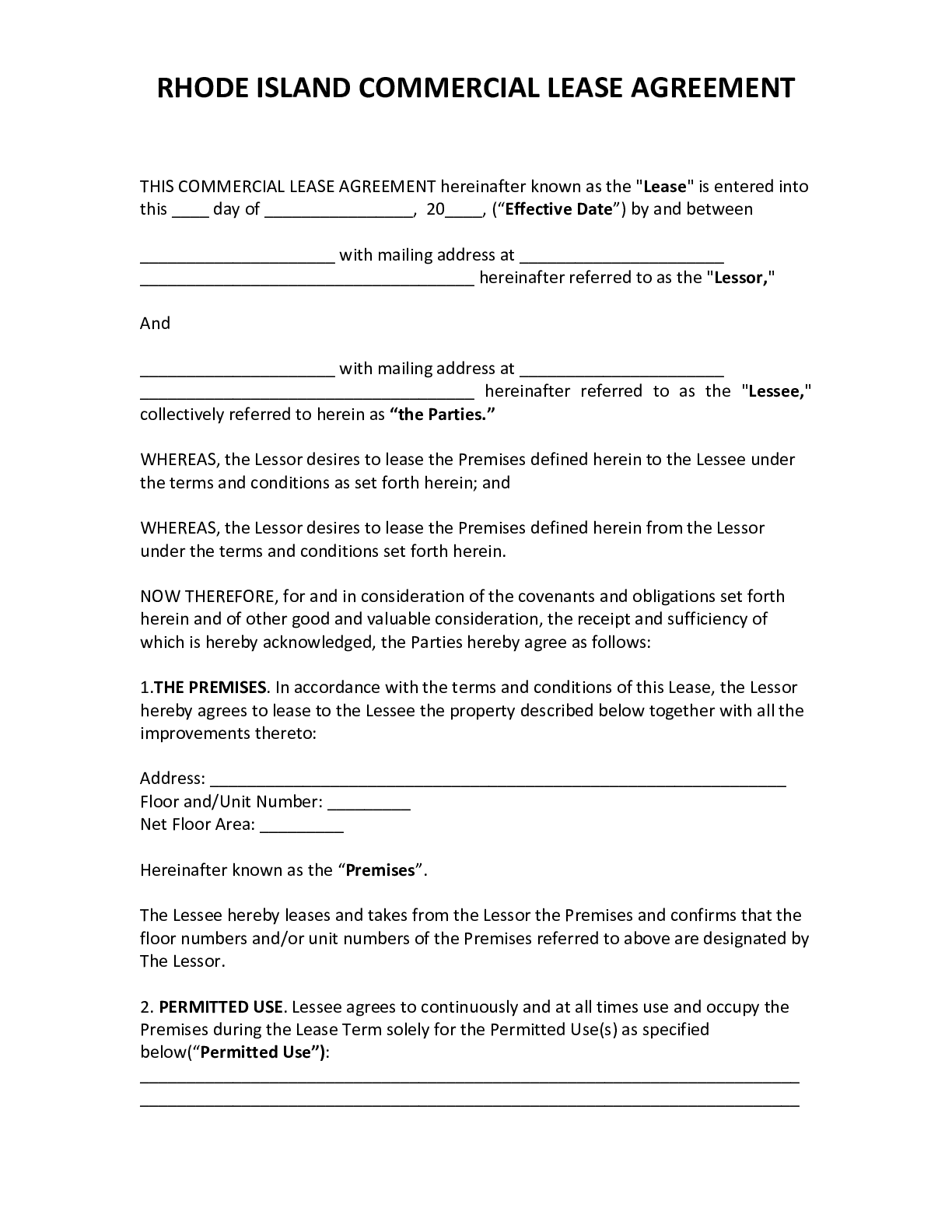
A Rhode Island commercial lease agreement is a legal contract arranging the rental of commercial space between a landlord and a business.
To learn more about required disclosures in Rhode Island, click here.
To learn more about landlord tenant laws in Rhode Island, click here.
(1) If there are fees beyond the rent that apply to the rental of a unit, the lease shall disclose those fees in the same section as the rent disclosure and shall indicate that additional fees may apply. This requirement does not apply whenever the tenant or unit are receiving state of federal subsidies that require a different lease format.
(2) If there is no written lease, the landlord shall provide to the tenant, in writing, a list of all fees beyond the rent that apply to the rental of the unit. Any change in required fees must be disclosed in writing at least thirty (30) days prior to the change becoming effective.
(3) In any lease agreement the landlord shall disclose which utility cost are included in the rent and which utility cost are the tenant’s responsibility. If there is no written lease, the landlord shall provide this information to the tenant writing.
(4) If a tenant is required to obtain renters insurance, this requirement must be stated in the lease or if there is no written lease the landlord shall provide this information to the tenant in writing.
(5) If a landlord fails to comply with subsections (a)(1) through (a)(4) of this section, the tenant may recover any fees paid for the unit that were not disclosed as required.
(a) Prior to an increase in rent being imposed by a landlord for a residential tenancy, excluding an independent living facility, assisted living facility, or congregate care facility, notice of the increase shall be given in writing to any tenant by a landlord at least sixty (60) days prior to the effective date of the increase.
(b) A landlord must of a residential tenancy, excluding an independent living facility, assisted living facility, or congregate care facility shall give at least one hundred twenty (120) days notice to month to month tenants over the age of sixty-two (62) years, before raising the rent.